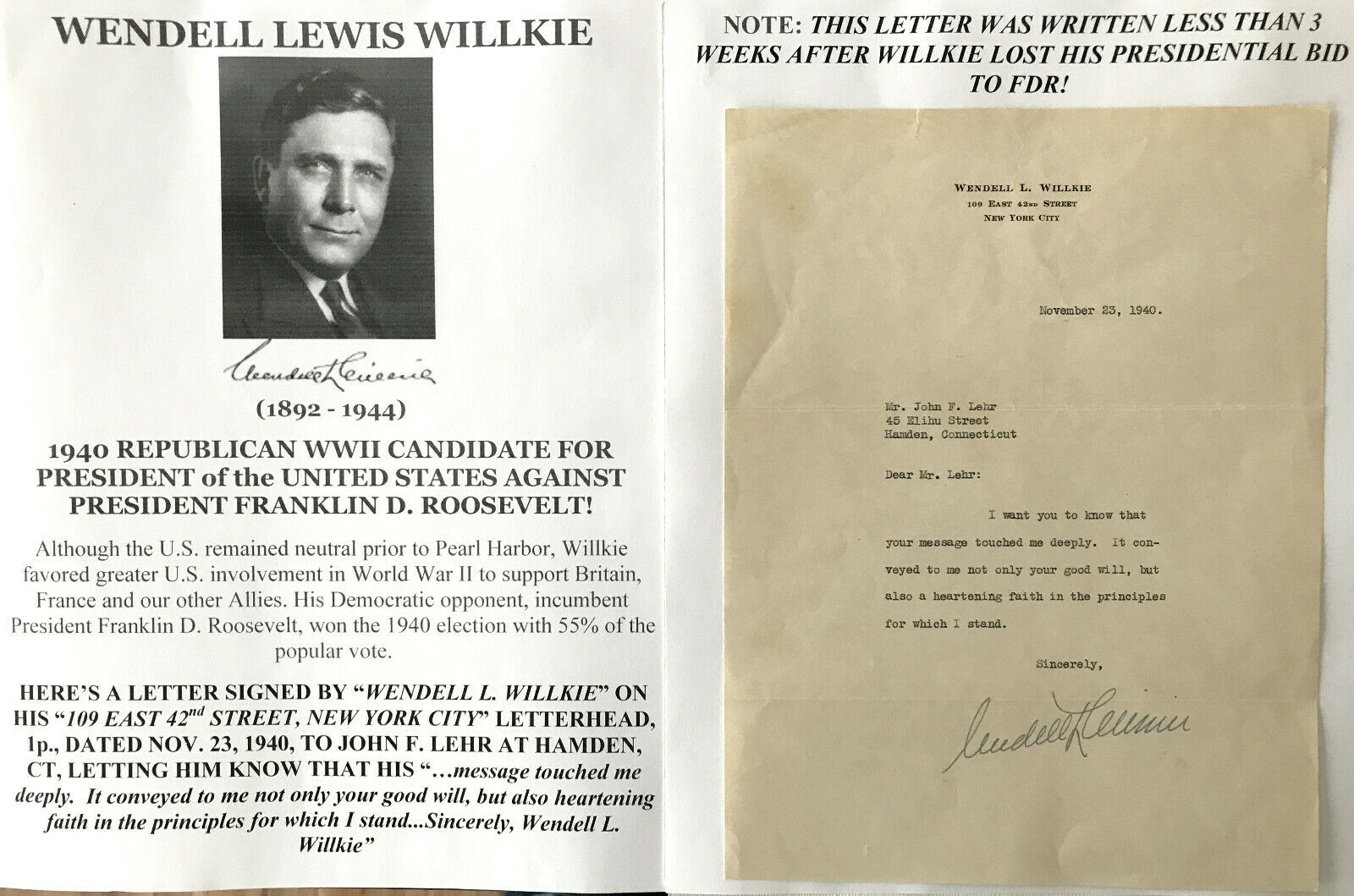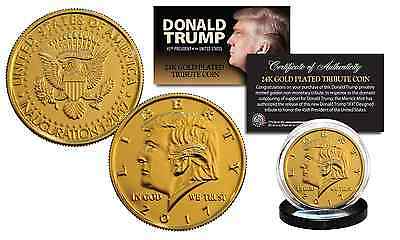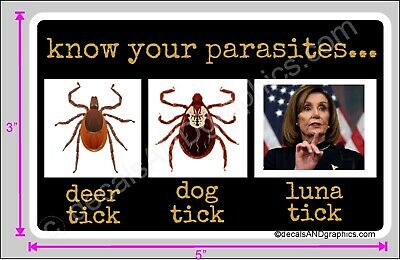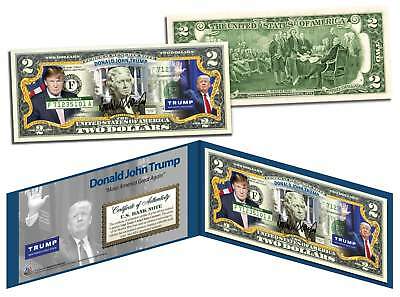-40%
1940 REPUBLICAN WWII CAND PRESIDENT WILLKIE v FDR LETTER SIGNED LOST ELECTION VF
$ 5.27
- Description
- Size Guide
Description
WENDELL LEWIS WILLKIE(1892 - 1944)
1940 REPUBLICAN WWII CANDIDATE FOR PRESIDENT of the UNITED STATES VERSUS PRESIDENT FRANKLIN D. ROOSEVELT!
Although the U.S. remained neutral prior to
Pearl Harbor
, Willkie favored greater U.S. involvement in
World War II
to support Britain, France and our other
Allies
. His Democratic opponent, incumbent President
Franklin D. Roosevelt
, won
the 1940 election
with 55% of the popular vote.
<
<>
>
HERE’S A LETTER SIGNED BY “
WENDELL L. WILLKIE
” ON HIS “
109 EAST 42
nd
STREET, NEW YORK CITY
” LETTERHEAD, 1p., DATED NOV. 23, 1940, TO JOHN F. LEHR AT HAMDEN, CT, LETTING HIM KNOW THAT HIS “…
message touched me deeply.
It conveyed to me not only your good will, but also heartening faith in the principles for which I stand...Sincerely, Wendell L. Willkie”
NOTE:
THIS LETTER WAS WRITTEN LESS THAN 3 WEEKS AFTER WILLKIE LOST HIS PRESIDENTIAL BID TO FDR ON NOV. 5, 1940!
The document measures 7¼” x 9½” and is in very fine condition.
A FINE PIECE OF AMERICAN POLITICAL HISTORY.
<<>
::
<>>
Biography of the Honorable
WENDELL L. WILLKIE
Wendell Lewis Willkie
(born
Lewis Wendell Willkie
; February 18, 1892 – October 8, 1944) was an American lawyer, corporate executive, and the 1940
Republican
candidate
for president
. Willkie appealed to many
convention
delegates as the Republican field's only
interventionist
: although the U.S. remained neutral prior to
Pearl Harbor
, he favored greater U.S. involvement in
World War II
to support Britain and other
Allies
. His Democratic opponent, incumbent President
Franklin D. Roosevelt
, won
the 1940 election
with 55% of the popular vote.
Willkie was born in Indiana in 1892; both his parents were lawyers, and he also became one. He served in
World War I
but was not sent to France until the final days of the war, and saw no action. Willkie settled in
Akron, Ohio
, where he was initially employed by
Firestone
, but left for a law firm, becoming one of the leaders of the Akron bar. Much of his work was representing
electric utilities
and in 1929, Willkie accepted a job in New York City as counsel for
Commonwealth & Southern Corporation
(C&S), a utility holding company. He was rapidly promoted, and became corporate president in 1933. Roosevelt was sworn in as U.S. president soon after Willkie became head of C&S, and announced plans for a
Tennessee Valley Authority
(TVA) that would supply power in competition with C&S. Between 1933 and 1939, Willkie fought against the TVA before Congress, in the courts, and before the public. He was ultimately unsuccessful, but sold C&S's property for a good price, and gained public esteem.
A longtime Democratic activist, Willkie changed his party registration to Republican in late 1939. He did not run in the 1940 presidential primaries, but positioned himself as an acceptable choice for a deadlocked convention. He sought backing from uncommitted delegates, while his supporters, many youthful, enthusiastically promoted his candidacy. As
Hitler
rampaged through Western Europe in the spring of 1940, many Republicans did not wish to nominate an isolationist like
Thomas E. Dewey
, and turned to Willkie, who was nominated on the sixth ballot over Ohio Senator
Robert A. Taft
. Willkie's support for aid to Britain removed it as a major factor in his race against Roosevelt, and Willkie also backed the president on a peacetime draft. Both men took more isolationist positions in the final days of the race. Roosevelt won a third term, taking 38 of the 48 states.
After the election, Willkie made two wartime foreign trips as Roosevelt's informal envoy, and as nominal leader of the Republican Party gave the president his full support. This angered many conservatives, especially as Willkie increasingly advocated liberal or
internationalist
causes. Willkie ran for the Republican nomination in 1944, but bowed out after a disastrous showing in the Wisconsin primary in April. He and Roosevelt discussed the possibility of forming, after the war, a liberal political party, but Willkie died in October 1944 before the idea could bear fruit. Willkie is remembered for giving Roosevelt necessary political cover in 1940, which allowed the president to aid Britain in her hour of need.
I am a proud member of the Universal Autograph Collectors Club (UACC), The Ephemera Society of America, the Manuscript Society and the American Political Items Collectors (APIC) (member name: John Lissandrello). I subscribe to each organizations' code of ethics and authenticity is guaranteed. ~Providing quality service and historical memorabilia online for over 20 years.~
WE ONLY SELL GENUINE ITEMS, i.e., NO REPRODUCTIONS, FAKES OR COPIES!











